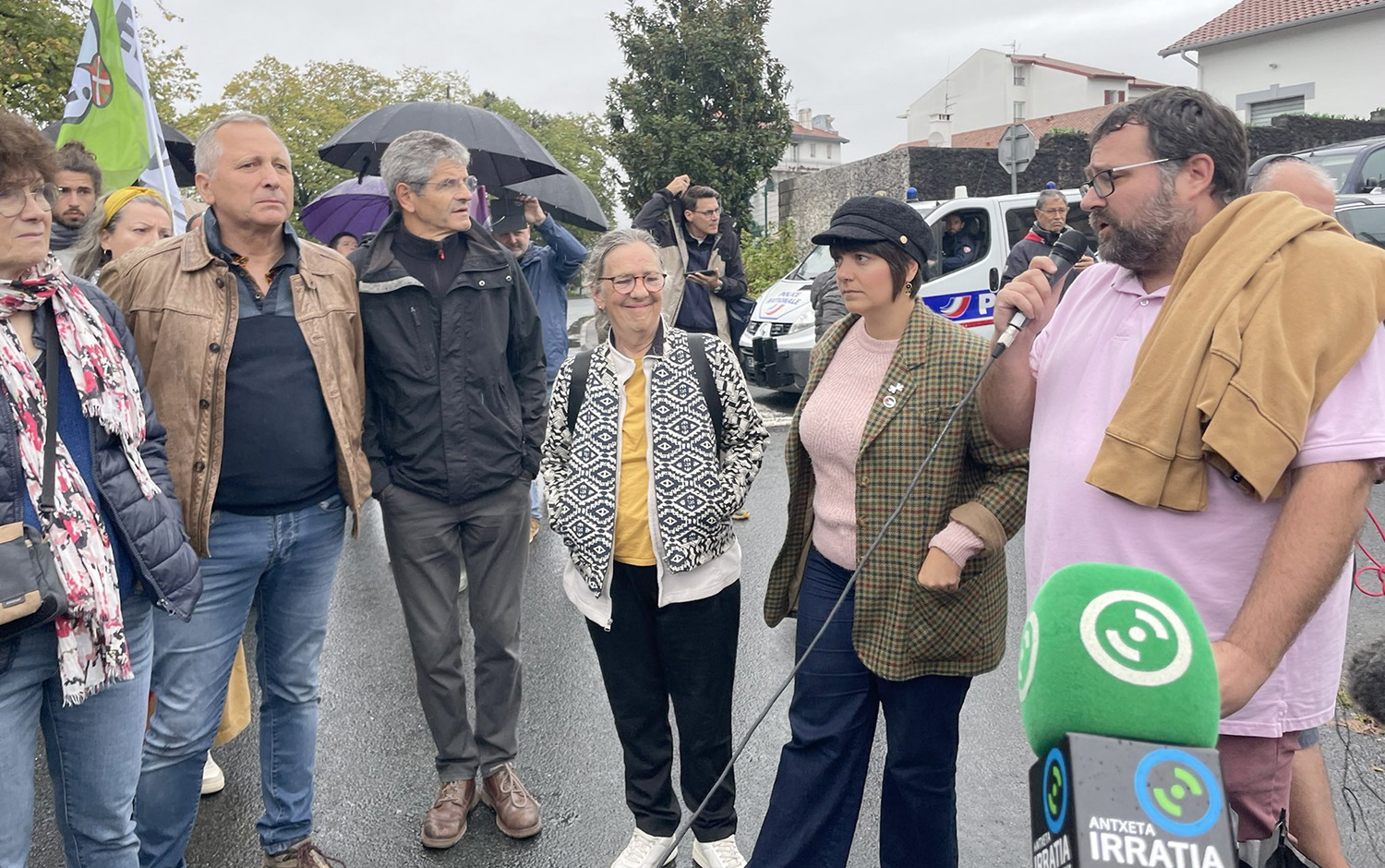With the lockdown you had to suspend your activity in March. How have the volunteers lived these long months?
They've been very long for everyone. When we entered the house, the situation was harsh, especially with the migrants who were on the street. I am a volunteer, this fills me with a lot, and in these months we have had a gap. I feel very good at helping people, I do it at ease, also consciously. And along this road, I've met a lot of new people, I've missed them. After all, we all form a large family of volunteers and migrants, we have missed them. Where will they be? In what situation?’ Many questions and concerns have come to mind. We've all had a hard time.
And the migrants, how have the lockdown passed?
I have maintained the relationship with some of those who have gone through here. Those in Paris say that they were fine, that these months were dignified. I also spoke to a couple who are in Bilbao and who were also in good condition. But with those who have started to mature, we haven't made that much contact. The new situation does not allow too much, it is difficult to strengthen the relationship. But we know that almost everyone has passed the lockdown in a very bad state.
In recent weeks you have had the opportunity to return to the Plaza de San Juan. How did it turn around?
This is the third week that we're already on the street. We were eager to come back. It has been very nice to meet again in the Plaza de San Juan. The first few days we were all noticed a smile. We go back to the plaza to give that visibility that the issue needs. We are ready to continue fighting as in the last two years.
Have you noticed a great movement since you've recovered your hospitality work?
Yes, that's why we've seen the need to get out into the street. People have come every day. Until the start of the buses, the three have arrived by train, from Madrid. It has also been a curious thing. They began to arrive when it was forbidden to move from one autonomy to another. How did you come here? We asked them. They said that at the station they had found the police, but that they allowed them to take the road to Irun smoothly. Amazing. And then, when the possibility of moving from one community to another opened up, more people began to arrive. Tomorrow [referring to Wednesday] Alsa buses will be in operation from Madrid to Irun. It is therefore expected from tomorrow that the situation will change dramatically. We will adapt our work to fluidity.
How many people have arrived in recent times, on average?
On the first day, we received a fortnight of people, four women and six children. And in the coming days there have been ten, seven, fifteen… A dozen people a day, taking into account what is planned for the coming weeks and months.
Summer has been the toughest period of the last two years. How do you anticipate the coming months?
We are very concerned about the situation that may come. We think Irun is going to do it. The Red Cross is trying to open a new hostel in Irun. I believe that at least two others will be needed. The difficulties to cross the border will increase, which will have a significant impact on the city. If before the migrants had it difficult, it will now be even harder for them to return to Ipar Euskal Herria. I believe that border control will bring with it a kind of funnel in Irun, where many will be blocked. We were planning to set up tents, but the current situation is not possible. We speak with our hearts, but we must think with our heads. We cannot manage that situation that may come, the institutions should do that work. It will be very difficult to manage the reception tasks together with the current health emergency. We are faced with a serious problem. This is not like 2018. Then they entered Lakaxita, they all had a place to spend the night, but now the situation is completely different. We are facing a major health problem, and for example, the fact that some 50 people stay on the streets is unfair, unacceptable.
So, this year do you expect to serve more migrants than ever before?
It is estimated that up to 4,000 people could be affected. We will certainly have to pay more attention than in previous years. In addition, it must be borne in mind that almost all those in the Spanish State will go to France and pass through here. In Morocco and the Canary Islands the situation is also harsh, at any time thousands of people are going to start to die.
It's been two years since you created Irun's Reception Network. What valuation are you doing?
I think we volunteers have done a great job. Between 13,000-14,000 people have gone through the reception network in the last two years. I believe that we have done excellent, but also political, social work. Thanks to the pressure exerted, we have managed to open up a number of devices, but the fight has been very hard. I myself have cried a lot these two years. There have been times when I thought ‘with this I cannot’, but we have made progress. The friends who have been around here have told us very hard stories. But I think the work that has been done has been worth it, we have also done well. In October it will be two years since we went down to the Plaza de San Juan, and at the moment we have not been kicked, that is also a great achievement. We have made our plaza, the plaza is already Africa [laughing]. We have done a job that makes us proud. And now we will continue to fight the situation.
How long do you intend to go on the street?
Until the City Hall grants a place, therefore, forever. We do not have much hope, but we continue to call for a place to facilitate our work. But if we get the place, we'll stay in the plaza. There's a problem, and thanks to it, people see it. The response of the public has also been impressive. It's nice to think that we've awakened some people's consciousness, we didn't expect it.
























